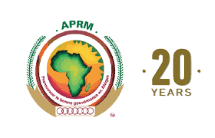 By Dr Ntombifuthi Nala
By Dr Ntombifuthi Nala
The term African Solutions to African Problems was first coined by Ghanaian political economist George Ayittey in the early 90s. At the time the posture of the international community was to seek to impose several unworkable solutions to challenges on the continent.
Ayittey believed that these “imported solutions” did not have the vested interest of Africans at heart and were therefore not viable options. He advocated that it was time for Africans to take their destiny into their own hands by using their own resources to solve the continent’s challenges.
In taking forward this idea, African leaders in 2003 under the New Partnership for Africa’s Development created the African Peer Review Mechanism (APRM) which is widely regarded as an innovative approach designed and implemented by Africans for Africa.
Last year our continent marked the 20th anniversary of the APRM which since its introduction fostered good governance, economic development, and social progress on the continent through systematic peer learning and self-assessment.
The self-assessment is guided by an APRM questionnaire while APRM officials conduct a background study of governance and development issues in the country. This is followed by a visit of a panel of experts (led by the APR Panel of Eminent Persons) who undertake extensive discussions with government officials, civil society and citizens.
Incorporating the country’s own self-assessment, a report is developed and submitted to the African Peer Review Mechanism Forum of Heads of State and Government of Participating Member States for peer-to-peer review.
This allows African nations to share their experiences and reinforce best practice. In doing so policies, standards and practices that lead to political stability, high economic growth and sustainable development are advanced.
The participation and compliance to the APRM is voluntary for African nations. Those who sign up through their own accord demonstrate their commitment to good governance and public accountability. In promoting good governance and public accountability, the APRM becomes a strategic instrument for building democracy, peace, and development in the continent.
Two decades into its existence, the APRM currently boasts 44 signatories out of Africa's 55 states and has played an instrumental role in moving the continent forward.
Milestones over the period include 23 countries undergoing the APRM country review process. Five have opened themselves up again for a second-generation review and others have completed targeted reviews on specific governance challenges.
Over the years, the APRM has served as an early warning mechanism to avert national crisis, identified areas that require interventions in member nations and highlighted common governance challenges across the continent.
Despite its many achievements, the APRM is still working towards universal accession by all 55 African nations and for inactive APRM countries to meaningfully participate in governance reforms.
When all countries participate in the mechanism, we can advance the continent socio-economic development and contribute to the attainment of the AU Agenda 2063 and the UN 2030 Sustainable Development Goals.
South Africa is one of the founding member states of the APRM and was among the first countries to be peer-reviewed in 2005-2006 and fully participates in the activities of the APRM. The country has produced three progress reports based on the recommendations of the first peer review, and in February 2022 became the fifth member state to undertake the second-generation review.
As part of the second-generation review, South Africa also became the first country to be peer-reviewed on the fifth thematic area on “state resilience”.
South Africa continues to provide leadership in the mechanism and remains committed to the success of the mechanism which not only builds our country but also the continent at large.
Dr Ntombifuthi Nala is Director: Research at GCIS





